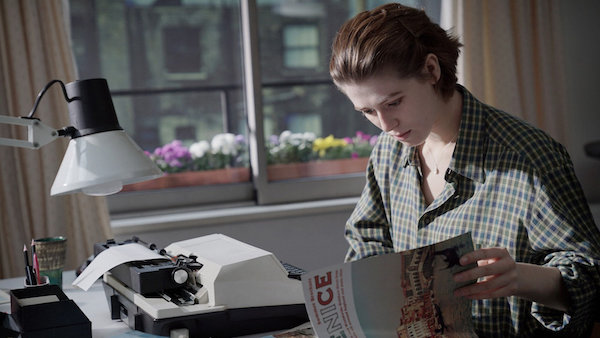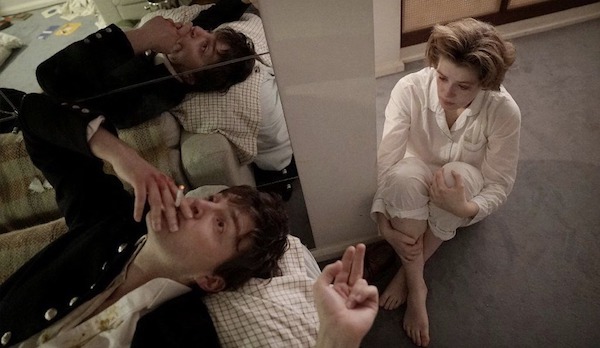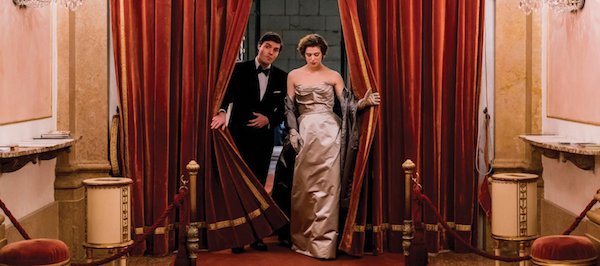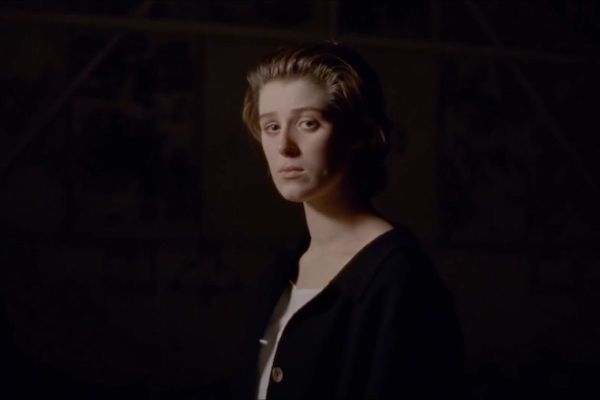With her newest film, Joanna Hogg holds a mirror to her own experiences through Julie, a young woman navigating her ambitions, both emotional and professional, in The Souvenir. Mary Bolton dives into the film’s refracted elegance to uncover the danger and talents that lie within it.
“Sorry, I'm not articulating myself very well,” Julie (Honor Swinton Byrne) apologises to her film professors. She is attempting to dictate why she is interested in making a feature-length film about a working class family living in Sunderland, a world so different to her own privileged upbringing. Her professors, visibly bored, begin to pick apart the idea, patronisingly advising her to work from her own experience at this early stage in her career. “It’s suggested that you have a moral or political aim,” they say, as if they have heard it before. “Yes, moral to me,” she echoes, before admitting that her upbringing makes her feel limited. Trying to say that she has so much to say, but being unable to convince anyone.
The criticism of Julie’s professors recalls the advice offered to her by her charming if abrasive boyfriend Anthony (Tom Burke), as she writes a statement of intent for film school. She admits her verdancy in filmmaking and her sincere hope to learn how to make informative but entertaining films. As she reads back her personal statement, he mocks her: “It slightly reads like you’ve been sort of backed into a corner by life, and it’s like, ‘Oh, well, I guess I'll be a film director.’” She then blanches at her writing, afraid she has misrepresented herself, that her ambition is muddled by sincerity.
Reflecting on a formative moment in director Joanna Hogg’s artistic career and personal life, The Souvenir, a semi-autobiographical film about a young film student in a tumultuous relationship with an older man, articulates the sensation of being inarticulate, the frustrations of having major ambitions but being silenced by imposter syndrome, and the danger of being intoxicated by a complicated love.
Hogg painstakingly recreates moments of the film from her own memories using dialogue between her and her lover lifted from journals and letters; inserting establishing footage and photography shot in her film student days of verdant leaves that smear across the lens, out-of-focus brake lights dotting the highway, and slice-of-life portraits of Londoners in the early 1980s into the film; recreating her posh-meets-punk student apartment in Knightsbridge on a soundstage with near-identical set dressings, creating a looking-glass effect. This looking-glass effect is the deliberate meditative quality the film evokes— as if reading over old diary entries with solemnity-twinged hindsight — used to explore Julie’s emotional and artistic awakening.
Hogg’s fictional counterpart tends toward passivity and observation as opposed to action. Often, she is a voyeur of her own life, quietly watching as it happens around her: she sits quietly through a family dinner in which politics are discussed, she takes candid photographs of her friends as they smoke and laugh at a party. When she attempts to assert herself, she stumbles over words and cannot find eloquent phrasing. Julie’s difficulty articulating herself is further complicated by her struggle to understand herself as an artist, a woman, a lover. When she is unable to plainly lay out why she wants to tell foreign stories, she seems out of touch and naive. When Anthony calls her a dark horse, she leans into an eroticized self and initiates sex with him — one of her most assertive acts in the film — before falling into passivity again. It’s often as if Julie is just a reflection in a mirror, mimicking the motions of a woman who looks like her on the other side but is still so far from reach.
The film evades an easy interpretation of Anthony and Julie’s love story, which largely plays out as a series of vignettes that convey the pair’s magnetism toward one another. Julie overlooks embarrassments and belittlement from Anthony because he is a sophisticated, mysterious man who challenges her intellectually and artistically, and claims he wants to know her deeply. Anthony defines Julie throughout the film: a “freak”, a “dark horse”, “someone who is lost, and always will be”. His classifications do not always fit, but Julie still tries them on like the lingerie he buys her in Paris, or the midcentury suit she has had made for a romantic holiday to Venice. She attempts to fit this image while balancing her own ambitions of being a filmmaker. Anthony’s perception affects her deeply; she attempts to emulate his sophisticated air. But this performance leaves her physically and emotionally tired, especially as his behaviour becomes increasingly erratic and removed from how he originally presented himself.
On holiday with Anthony in Venetian hotel, monogrammed luggage stacked up beside her, Julie sinks into a chair and cries. She is just off screen, the mirror and camera angled to show only her reflection, framed in a vanity mirror. Hogg creates distance stylistically, yet the scene feels so intimate that watching it feels like an intrusion. Anthony, thrown by her emotion, is excluded from this private moment between filmmaker and her fictionalised self; he begs her to explain why she is upset—that her silence feels like a punishment. Her tears feel like catharsis: in this elegant suit, in an extravagant hotel, Julie shows herself truly. Her attempts to fit others’ perceptions splits her open and leaves her fragmented.
In a conversation on the A24 Podcast with her mentor and the film’s producer Martin Scorsese, Hogg muses, “I don't want to discover too much about why I want to create. I don't want to know whether it's because someone shouted at me, whatever it is. That thing in the past, I don't want to uncover it”. Even if Hogg is uninterested in pinpointing that moment for her artistic development, she puts a frame around a memory, arranging the pieces of Julie’s story as to invite young women artists to see themselves in it. Julie struggles with being misinterpreted and underestimated by her professors, her family, her lover, and her cohort while grappling with her privilege, which manifests as embarrassment and inarticulation.
Throughout the film, Julie struggles to confidently provide direction to her film projects. She heavily relies on the advice of her crew to make decisions, but in the film’s final moments, she directs an actress monologuing a poem by Christina Rossetti with quiet confidence. Julie observes the actress as her camera operator moves past her on a track, zooming in on the scene. Simultaneously, Hogg’s camera slowly closes in on Julie before finding stillness in a close-up of her face in profile. In this shot, Julie makes direct eye contact with the camera. Her gaze is both confrontational and melancholy, just as the woman in Fragonard painting Anthony took Julie to see at the Wallace Collection is, according to Julie and Anthony, both “sad” and “determined, and very much in love”. In the quietly elegant final scene, Julie’s eye contact is jarring – for so much of the film, Julie is seen in reflection or through equally passive blocking (from behind, from the side) to underscore her timidity. Her eye contact shatters the film’s looking-glass effect, the haze of memory lifted. She is on the other side of the looking glass — the shattering, an awakening.
The Souvenir closes on Julie opening the doors to the aircraft hangar where she has been filming. She stands in the open doorway, small against the large building and the slice of vast countryside. As she stares out beyond the horizon, she sloughs off the self she constructed, and makes peace with moments of embarrassment, passivity, and the intense love that left her shattered. In a moment of lonely reflection,, she is left with her quiet resilience as a souvenir of her more fragile days.
Our JOANNA HOGG t-shirt is available to purchase here. Proceeds go towards paying our writers and supporting female-led film projects.
Mary Bolton (@marybolton_) is an Atlanta-based writer, focusing on film and television. She has bylines at Reel Honey, Screen Queens, Bright Wall/Dark Room, The Film Era, and more.
READ ME is a platform for female-led writing on film commissioned by Girls on Tops. Louisa Maycock (@louisamaycock) is Commissioning Editor and Ella Kemp (@ella_kemp) is Contributing Editor





